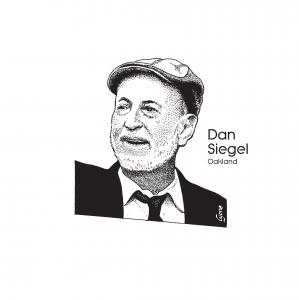Dan La Botz' article on the return of Left to electoral politics is generally insightful, and its survey of campaigns around the U.S. is a valuable contribution. However, the article's analysis of the Dan Siegel campaign for mayor of Oakland is off.
Siegel's economic program is not one "for capitalist investment that might have been developed by Democratic or Republican party candidates." It's not a socialist program, but no mayor is likely to bring about socialism in one city. Capitalist investment is indeed moving into Oakland, and the question is what form this will take. Will it displace Oakland's working class and force out even more of Oakland's African American residents? Or can Oakland's current residents organize and leverage capital's desire to invest in Oakland to extract concessions that can improve life here for the majority?

Silicon Valley capitalists, with no love lost for the cable monopolies, might indeed be fine with bond-financed municipal investment in a public broadband internet provider, although they'd probably prefer one of their own control the infrastructure, Google Fiber-style. Business interests are less likely to be happy paying taxes to help finance jobs for Oakland residents repairing streets, re-insulating buildings and installing solar panels, one of the Siegel planks La Botz mentions, or paying for after-school programs and universal pre-kindergarten education, planks La Botz leaves out.
Much less are capitalists interested in paying $15 per hour to each of Oakland's many service workers. La Botz implies Siegel's support for $12.25 is a retreat; in fact, while Siegel supports an independent union-backed ballot initiative that chose the lower number, he also still campaigns on a promise to submit legislation for $15 once in office.
The current phase of gentrification in Oakland is led by residential investment, with skyrocketing rents and property values. Tech workers are moving to Oakland as individuals much more rapidly than their jobs, creating a hot real estate market. More than 70% of Oakland residents rent, but California’s anti-tax Proposition 13 and Costa-Hawkins act limit Oakland's options in protecting tenants, banning any property tax increase as well as rent control for single-family homes or after vacancies. Within these constraints, Siegel supports an elected rent board, city-provided "free or low cost” legal counsel for tenants, and a large expansion of nonprofit affordable housing via construction or conversions–funded by an anti-speculation tax on real estate transfer and a doubling of Oakland's gross receipts tax on rental income. Together these would amount to a substantial transfer of wealth from landlords to renters and the public.
Oakland's current mayor, Jean Quan, bragged last year of her administration's accomplishments:
"We've grown our economy by supporting local businesses and reviving major development projects to create jobs. As we've grown the city's budget, I used that growth to hire police officers and we have begun to reduce crime… I cut budgets at City Hall… and reduced… pension costs… As a result, Oakland's overall economy is the strongest it’s been in years."
Quan is actually one of the more liberal candidates in the current race, but her "grow the economy, hire police" pairing is representative of the ruling class plan for Oakland.
Even though the city already allocates 40% of its discretionary budget to the police, every other major candidate supports expanding the force, which makes Siegel's stance that Oakland does not need any more cops a clear contrast. It’s true, as SocialistWorker.org has argued, that he could do better, and call for a downsizing of the city’s brutal and unaccountable force. Nevertheless, unfortunate outbreaks of "small business" rhetoric aside, Siegel's program is not that of Oakland's capitalists. And his choice to deregister as a Democrat prior to the race is primarily symbolic, given the election is nonpartisan, but still not without risk, and not to be discounted.
La Botz concludes rightly that what the Left needs is for “political campaigns [to] begin to interact with the social and labor movements in such a way as to inspire a virtuous circle.” Siegel has said similar things himself, and this vision of a movement-based campaign is what has drawn in many of his core supporters.
But there are countervailing pulls in the Siegel campaign. The consultants who built the slick website also have a fairly conventional understanding of how to win an election, and this sometimes comes through in the materials they produce. And Oakland's ranked-choice voting, which brought Mayor Quan to power on the back of second-place votes, gives candidates an incentive to play nice with each other, so as not to alienate rivals' supporters, whose second and third choices still matter.
Given the stark contrast between Siegel and Oakland’s Democratic establishment, voters who are persuaded by another candidate’s platform won’t be likely to select him second or third. Siegel’s left supporters believe that since he can’t be a consensus candidate, to have a shot, he’ll have to polarize the race around issues that mobilize people and try to win mostly with first-place votes. But not everyone in the Siegel campaign agrees with this logic, and the campaign’s future is unwritten.
The question, then, for this election, is not which Democratic candidate can pick up Siegel’s platform and “run with it all the way to the bank.” The question is whether Siegel’s radical ideas will get highlighted, and with luck capture the imagination of large numbers of people in Oakland and sweep an activist mayor into office, or whether, for reasons internal or external to the Siegel campaign, a real opportunity to transform Oakland politics will be missed.
David Judd is an Oakland resident and a member of the International Socialist Organization (ISO), which has endorsed the Dan Siegel campaign.
Drawing by Lisa Lyons.


Leave a Reply